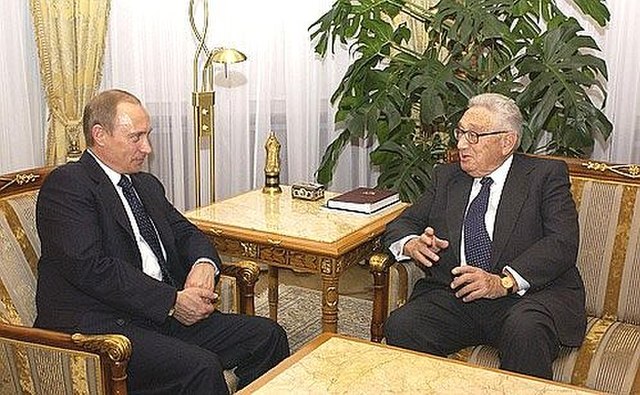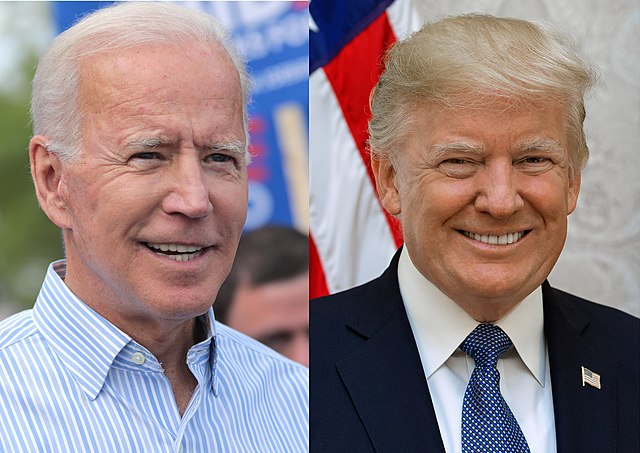On Nov. 29th, Henry Kissinger, the former Secretary of State under President Richard Nixon and Gerald Ford, died peacefully at his home. He was 100 years old.
As his death hit the news, media outlets were right to correctly point out that Kissinger was a divisive figure “accused of war crimes” during his tenure as a diplomat. The word “accused” does a lot of heavy lifting. The notion that Kissinger could simply be “accused” of war crimes is rather silly. Lest we forget the hundreds of thousands killed by the falling bombs of the American war machine in Vietnam, Laos, and Cambodia? Lest we forget the millions who suffered in southern Africa because of Kissinger’s insistence that the U.S. support the apartheid regimes in Rhodesia, Angola, and South Africa? Lest we forget the hundreds of millions of people, from Afghanistan to Libya to Yemen, that now suffer as a result of misguided Kissinger-inspired U.S. foreign policy in the 21st century?
Henry Kissinger was a war criminal, a hawk, and an exporter of hellish violence to far-off lands. His true legacy however has lived on long past his time in Washington and will continue to live on due to the oppressive governments the U.S. supports to this day as a result of his policy ventures.
Henry Kissinger was a man of many talents. A studier of history, a decorated veteran, an architect of war. All noble and honest traits of course. In just a brief eight year time frame, from 1968 to 1975, Kissinger helped prolonge the Vietnam War for political purposes, overthrew multiple democratically elected leaders with the help of the CIA, and stood idly by as U.S-backed autocrats committed genocide against a minority populations.
Kissinger’s time as secretary of state will be marred by his insistence on starting a secretive bombing campaign in Cambodia and Laos. Said bombing campaign killed upwards of 150,000 people in Cambodia. The bombing of Cambodia not only killed civilians but emboldened the Khmer Rouge, the Communist revolutionaries who had started a civil war to overthrow the U.S.-backed Cambodian military government. As a report by the United Nations on the rise of the Khmer Rouge explained, “Massive bombings of eastern Cambodia by the United States (1969-1973) and the overthrow of Sihanouk by a pro-American right-wing general in March 1970 radicalized the rural youth, turning many of them into the arms of the regime.” The Khmer Rouge under the leadership of Pol Pot made headway in the civil war, eventually taking over Cambodia in 1975. What followed was one of the most brutal genocides in history, as two million Cambodians perished. While Pot and his accomplices were overthrown in 1979, their four year long slaughter still affects Cambodia to this day.
While his crimes in Cambodia are his most notable work, Kissinger’s influence on American foreign policy didn’t stop with the former Indochina colony. Chile bore the brunt of Kissinger’s wrath through Operation Condor. His work in overthrowing democratically elected Salvador Allende brought about a brutal right-wing dictatorship under General Augusto Pinochet. Pinochet, much like the capitalist South Vietnam puppet state, served the interests of the United States. He imprisoned and killed dissenters, many of whom were poor laborers who supported Allende. In the most extreme cases, Pinochet’s secret police deployed the use of helicopters to drop alleged communists into the Pacific Ocean. The United States supported the Pinochet rule until his overthrow in 1990. Luckily for Pinochet, he never had to stand trial for his crimes against humanity.
Kissinger’s rap sheet of supporting genocide in places like Bangladesh and East Timor, as well as his support of right-wing dictators in Argentina (Jorge Videla) and Zaire (Mobutu Sese Seko), have continually affected U.S. foreign policy long after his resignation in 1975. Most notably, the pattern of supporting authoritarian regimes, such as the Pinochet in Chile, the Saudi Arabian crown, and Suharto in Indonesia have been mirrored in the modern day.
Indonesia under Suharto was a keen ally of the United States after the Vietnam defeat. Suharto promised that the further spread of communism in the South China Sea would be quashed. When the people of East Timor elected the socialist party Fretilin, Suharto moved in quickly. The invasion of East Timor in 1975 brought about a ruthless occupation of the small inlet nation. Suharto’s military forces killed upwards of 103,000 Timorese through mass murders and starvation. This wasn’t the only Indonesian genocide the U.S. ignored. Documents published in 2017 revealed the U.S. was aware of the killings of over a million Indonesians accused of being “communists” by Suharto’s regime. This didn’t damper the U.S. relationship with Indonesia.
Even today, the Indonesian government, according to Amnesty International, continues crackdowns on journalists, women, LGBTQ+ people, and the right to free speech and press. All the while, the U.S. is allied with the Indonesian government to ensure trade routes in the South China Sea.
The connection between the Kingdom of Saudi Arabia and the United States has the fingerprints of Kissinger all over it. While the Saudi royal family and the U.S. government go way back before Kissinger’s time, Kissinger’s detente in the 1970s with the Saudis has formed much of the willing ignorance towards Saudi Arabia’s egregious human rights violations. Saudi Arabia has always been a shady character in U.S. foreign policy. The Bush family has connections through the oil business (which is why the U.S. has such a strong friendship with the Saudis; we need somewhere to get oil.) Even after a Saudi national related to the second wealthiest family in the country and with close ties to the royal family, Osama Bin Laden, committed multiple acts of terror including the 9/11 attacks, the United States instead focused its efforts during the war on terror in places like Baghdad rather than Riyadh. Saudi Arabia under Mohammed Bin Salman has lightened up on its radical fundamentalist Islamic ideology. Lightening up as in: they let women drive for the first time in 2017.
Saudi Arabia has been implicated in war crimes, the killing of journalists, and the illegal expropriation of migrant labor to advance its consumerist agenda. Under Mohammed Bin Salman, Saudi Arabia has intervened in the ongoing Yemen Civil War, causing the continuation of famine and war in the country. Yemen is now a failed state, and the Saudi Arabian crown is reaping the rewards of that failure. The killing of Washington Post journalist Jamaal Khashoggi was also linked back to Mohammed Bin Salman. The killing of journalists, the abuse of women, the sports-washing of a repressive regime and its billionaire rich kid leader, and the continuation of a proxy war growing increasingly out of control are all reasons to kick the Saudi crown to the curb. But the latest straining of the U.S-Saudi linkage by the Biden administration has nothing to do with the violation of basic human freedoms by one of the last monarchistic reigns on earth. It was caused by the Saudi government not producing more oil in the wake of the Russian invasion of Ukraine.
Indonesia and Saudi Arabia are only two repressive regimes that the U.S. has backed. That goes without mentioning authoritarian nations the U.S. has cozied up to in recent years like Hungary and Egypt. The Kissinger influence over American doctrine led to numerous military operations and fiascos, resulting in hundreds of thousands dead and even more subjected to brutal governments in service to the U.S. rather than the people. Henry Kissinger is not just a grandfatherly recipient of a Nobel Peace Prize for ending the Vietnam War. He is not just a presidential Medal of Honor recipient and a mere “diplomat” as some have ascribed him to be. Henry Kissinger was the leading exporter of violence, or carnage, and of death in many third-world nations. That is his true legacy.








